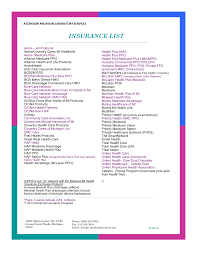
Medicaid is a government-funded health insurance program for low-income, elderly, and disabled individuals. This program provides low-income persons with health coverage and helps to pay for nursing home services. You or someone you love can request a fair Hearing if they have been denied Medicaid. You may represent yourself at the hearing, or you can hire an attorney to speak on your behalf. It doesn't matter how you choose to represent yourself at the hearing, you will still need to submit a letter detailing your appeal. This letter must be sent to South Carolina Department of Health and Human Services within the 10 day period following your initial rejection. The state department will review your case and decide if you should continue to receive Medicaid benefits.
Medicaid is government-funded healthcare insurance for the elderly, disabled, and those with low incomes.
South Carolina Medicaid, a government-funded program, provides coverage for low-income people, families and the elderly. The program has a long history and has expanded significantly since it was created in 1965. As the Federal and State governments tried to balance all factors that could affect its success, the program has undergone many changes. Medicaid, which was established in 1997, covered more than 33,000,000 people, making it the biggest health insurance program in America.
Medicaid is a government-funded insurance program that offers free health care for low-income people. To be eligible, applicants must be at least 65 years of age and meet specific requirements. The program covers 90% of the cost of a person's health care and pays for up to 10% of the cost of medication and doctor visits.

It's worth it to pay for nursing home care
Medicaid is a federal program that pays for nursing home care for eligible individuals. Medicaid pays for nursing homes in South Carolina via the Community Choices Waiver Program. This program provides services comparable to nursing home services, while residents can receive certain services in their own privacy. These services can include nursing care, personal care, and therapy services. Medicaid can sometimes pay for the care of adult children who are older than their parents. These caregivers need to pass background checks. They are only paid for their time.
Certain criteria are required to determine if you meet the eligibility requirements for Medicaid in South Carolina. You must meet certain income- and resource limitations to be eligible for Medicaid in South Carolina. Second, you must be a permanent resident of the State. A citizen of the United States must also be attained 65 years or older. For the care that you require, there are certain requirements. You must also need the care for at most 30 days.
You can be charged with fraud.
You've likely heard of the penalties for fraud if you are a Medicaid beneficiary. Medicaid is concerned about fraud. The Medicaid fraud prevention unit of the South Carolina attorney general's office works together with auditors and investigators in order to investigate and prosecute fraudulent cases. These attorneys are familiar with these types of cases, and they have a good understanding of the laws surrounding them.
Medicaid providers in South Carolina face both criminal and administrative penalties for fraudulent behavior. This law has strict penalties for Medicaid providers and applies to fraud in various ways, from the misrepresentation of financial data to the abuse of patients. In addition, Medicaid fraud penalties are designed to ensure that fraud victims get full restitution.

It offers appeals.
You can appeal a denial of Medicaid services in South Carolina. You can represent yourself at the hearing or hire an attorney to speak on your behalf. Start the appeals process by filling in the request for an equitable hearing form and sending it to Department of Health and Human Services. Upon receipt of the application, the hearing officer will review it and write a decision, which will be mailed to you. The decision will explain why you were denied service.
First, please complete the SCDHHS–CR Form. You have thirty days to appeal the denial. If you are unable or unwilling to submit the documentation required, the appeal may be denied. You should submit your claim again if this happens.